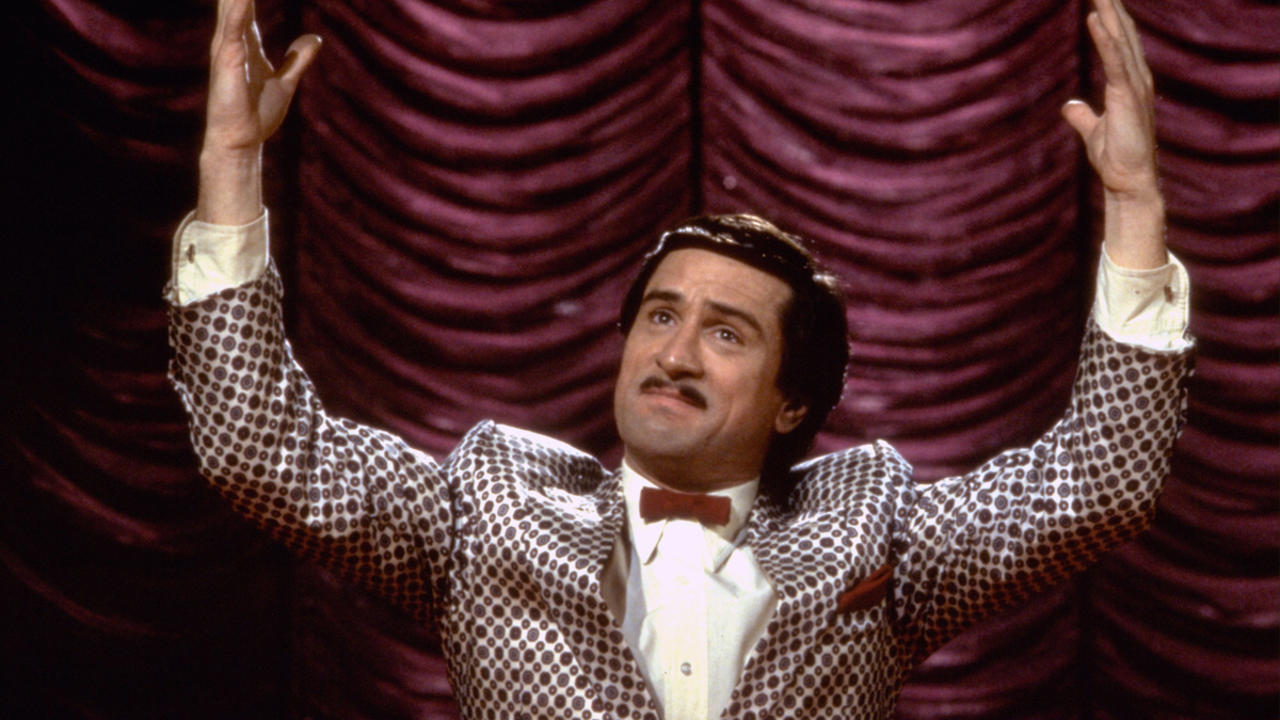
While the 1980s could be declared the decade of the blockbuster film in America, with many high-concept movies made with equally high budgets in the hope to attract as wide an audience as possible, it was also a decade where smaller films were starting to be produced at a rapid pace, hoping to both turn a sizable profit on relatively modest budgets while also enduring on the then nascent home video market.
And then there are the big-budget, mainstream studio-produced films that simply didn’t capture an audience at the time of their release but–again, thanks to the home video market–eventually found not only an audience, but a dedicated cult following.
With the thousands of films that were produced in America in the 1980s, many cult films sprung from that deep well. Some took a long time to find their audience while others, while initially successful, soon after fell into obscurity. And of course, some of these films have appreciated in value as changing tastes and views over the decade have shifted in American culture. For these and many other factors, here are 10 totally awesome cult movies from the 1980s.
1. Ms. 45 (1981)
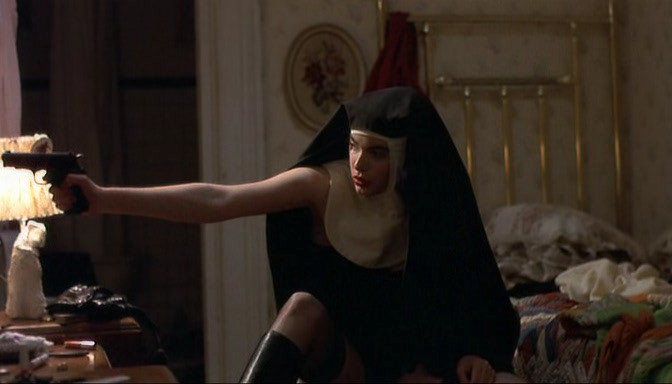
A young mute seamstress named Thana working in New York City is one day viciously attacked–twice–on her way home, brutally raped both on the street and in her own apartment. However, the second time she bludgeons the attacker to death, dumps his body in her bath, and keeps his .45.
Carrying on with her life, only now deeply traumatized, Thana dismembers his corpse and soon begins to stalk the streets like a vigilante, killing men–from violent pimps to perceived threats–out of self-defense and vengeance. When her co-workers invite her to a Halloween party, Thana brings the gun with her, just in case her male co-workers try anything…
Released in 1981, Ms. 45 was a distaff takeoff of violent revenge films that began to gain popularity in the 1970s. Directed by rough-and-tumble director Abel Ferarra and starring model and actress Zoe Tamerlis Lund (who was only 17 at the time), Ms. 45 outdoes its predecessors in the revenge genre due to the graphic on-screen assaults and ensuing violence they inspire in the character Thana.
Now read as a feminist film, Ms. 45 was not a success upon its initial release but has since gained a cult following over the years. The controversial life of Zoe Lund (an avid heroin user who would openly advocate for its legalization before dying of heart failure at 37) and raised reputation of Ferarra’s oeuvre–which includes the similarly graphic Bad Lieutenant–has led contemporary critics and film fans to reconsider this raw and violent low-budget revenge thriller.
2. Class of 1984 (1982)
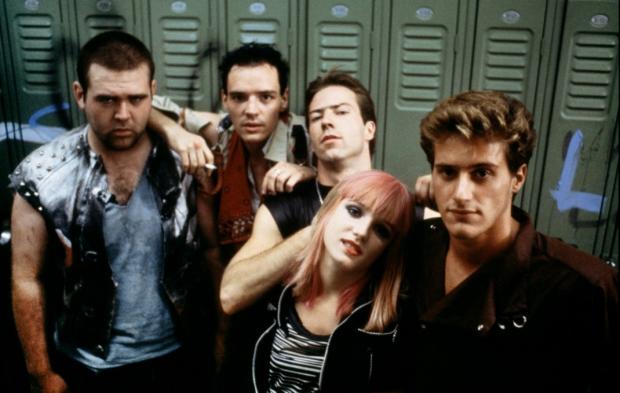
Andrew Norris is an idealistic music teacher who begins his new post at an inner city school. Refusing to share the cynicism of his fellow teachers–one of which even carries a gun–he tries to connect with his students. While he largely succeeds at this, a violent gang of drug-dealing students terrorize their classmates, cause mayhem both in and out of school, and eventually zero in on tormenting the music teacher.
When the leader of the gang frames Norris to make it look like he beat him up, the teacher exacts a measure of revenge by destroying the student’s car. Then on the evening of the orchestra’s first recital, the gang break into Norris’s house and rape his wife, taking Polaroids to torment Norris with; when he is handed a picture of this event on-stage at the recital, Norris heads out to save his wife and take his revenge on the gang members.
Class of 1984 is a true cult classic: its punk-inspired gang members, B-movie feel, and outre premise and delivery that could have only been produced in the anything-goes climate of films in the 1980s (examples of this in the film include a (fictionally) underage gang member working as a stripper; the gang hooking teen girls on drugs to pimp them out; and a teacher violently murdering his underage students) and makes this movie a VHS treasure.
Upon its release, Class of 1984 was banned in several countries, and its notoriety quickly made it a cult film. Both a product of its time and a shockingly gritty thriller, Class of 1984 holds up as a cult classic even 35 years after its release.
3. Britannia Hospital (1982)
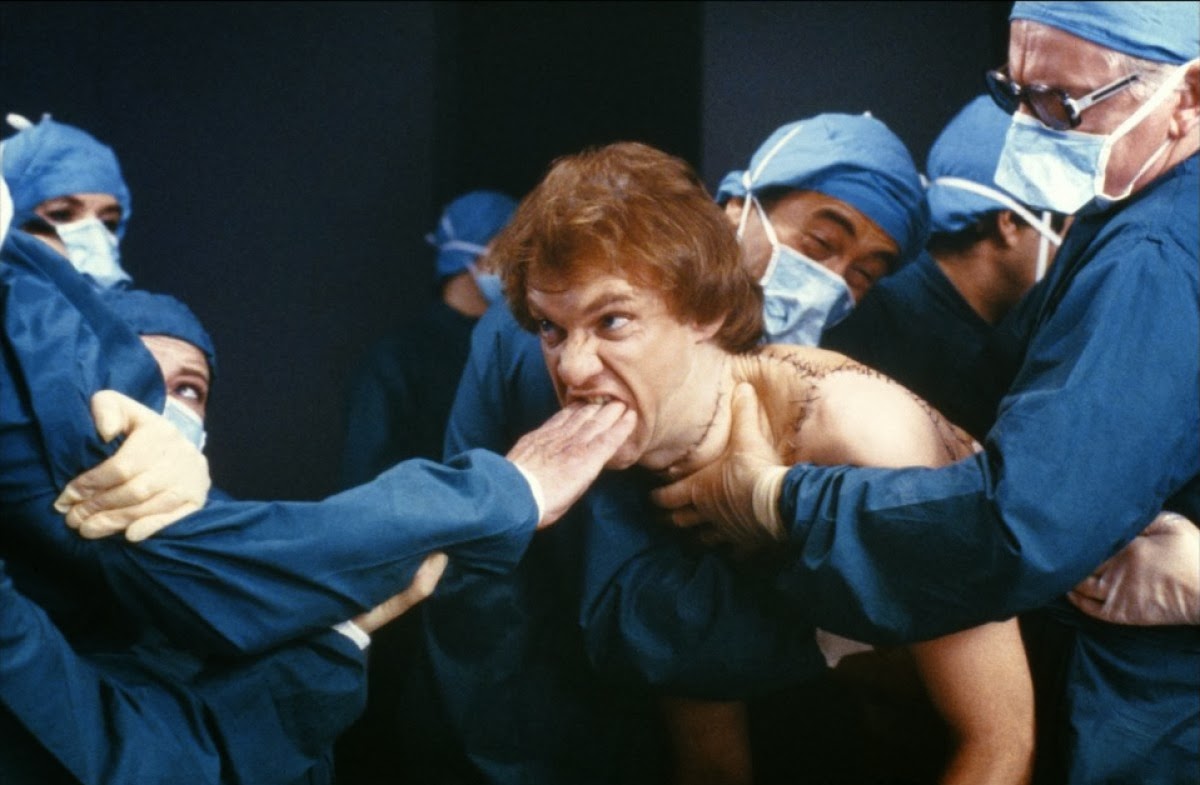
Following the goings-on of Britannia Hospital hospital on the day the Queen is to visit, in which the staff is threatening a strike, the long-term care wing of demanding private patients are looked at with contempt, the administrator is facing protests from treating an African dictator, a Frankenstein-like doctor is playing God, and an investigative reporter (Malcolm McDowell) is trying to uncover said doctor’s unseemly activities, Britannia Hospital is an overstuffed black comedy and social satire. With all of these moving parts simmering throughout, it all comes to a cacophonous head in the climax.
Directed by Lindsay Anderson, this was the conclusion of his trilogy of films following the adventures of Mick Travis (McDowell), starting with if…. in 1968 and followed by O Lucky Man! In 1973, as a young man trying to sort out and experience life in the increasingly strange country of 20th century Britain.
However, unlike the previous films, Travis is only a minor character in Britannia Hospital and part of a larger ensemble who come to represent every type of person in British society at the time. It’s a comedy, a fantasy, at times a horror movie, and always a biting satire.
While a box office bomb at the time of its release and receiving mixed reviews, some contemporary critics also highly praised Britannia Hospital for its originality and large scope. Over time, its reputation–along with Anderson’s overall work–has risen and it is now seen as a classic satire of the National Health Service in Britain and an overall strange, solid film that holds a mirror up to its country, reflecting its contradictions, ugly parts, and all.
4. The King of Comedy (1983)
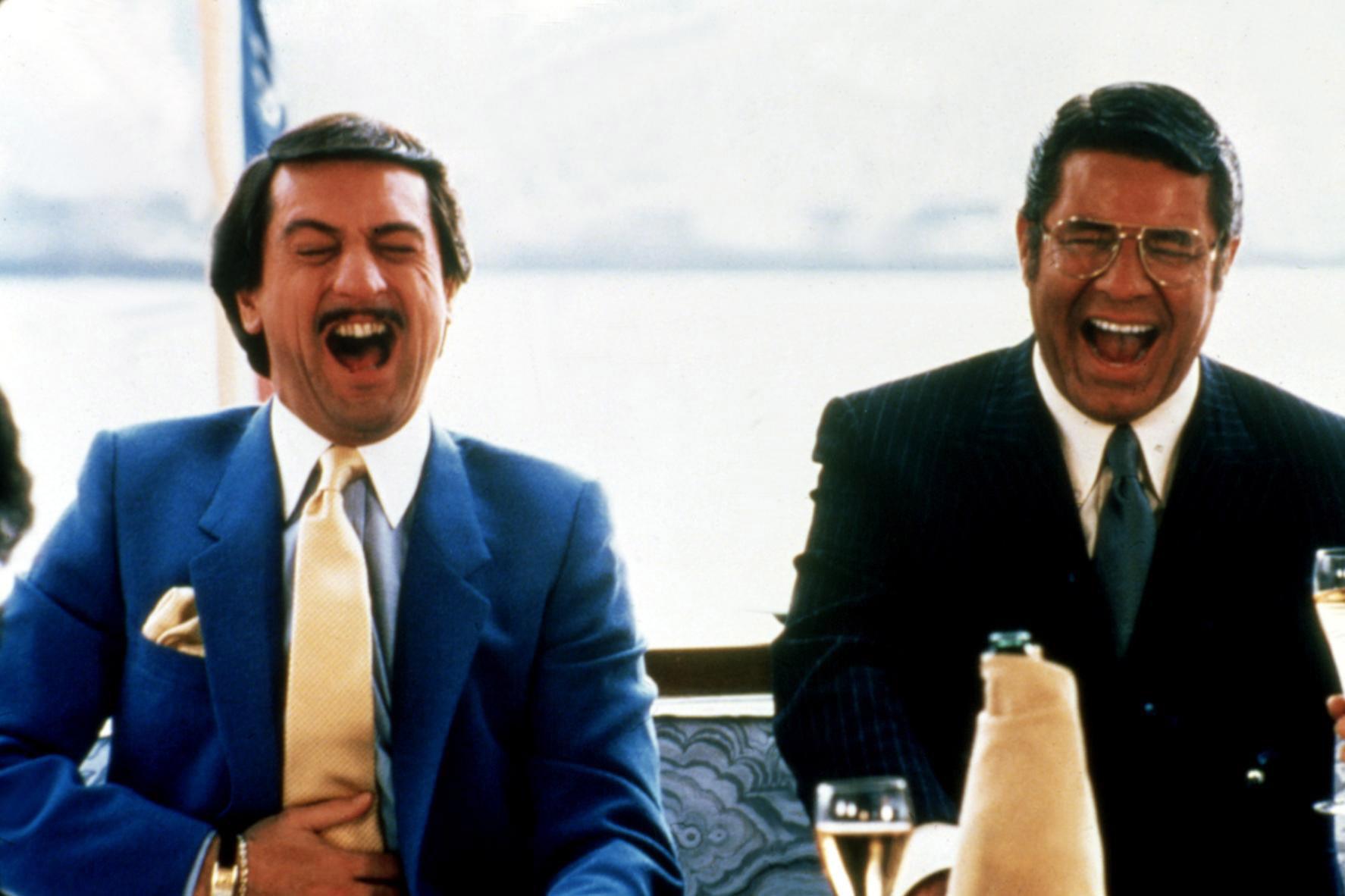
Martin Scorsese has made a lot of interesting films over his career: from a controversial depiction of Jesus’s sufferings on the cross (1988’s The Last Temptation of Christ) to a strange, surprisingly dark musical (1977’s New York, New York) to one long, strange night for an office worker who gets mixed up with the wrong people (1985’s After Hours), Scorsese is not the one-note director some of his detractors may label him. Out of all of the genre and storytelling experiments he’s set out to produce, perhaps his strangest is 1983’s black comedy The King of Comedy.
Following the increasingly desperate attempts of aspiring comedian Rupert Pupkin (Robert DeNiro) trying to get the attention of talk show host Jerry Langford’s (Jerry Lewis) and appear on his show, The King of Comedy is both unsettling and comedic.
While initially seemingly harmless, Pupkin is revealed to be a disturbed loser who play-acts being on Langford’s talk show with cardboard cutouts in his mother’s basement. His obsession with appearing on television reaches to new heights when he begins to intrude on Langford’s life, eventually leading Pupkin to concoct a new plan to get on his show.
Playing against type, both DeNiro and Lewis play comedic and dramatic roles, respectively, with Lewis’s dour, cynical talk show host clashing against the irritating and seemingly clueless Pupkin.
When his attempts to get on the show fail, Pupkin joins up with a stalker (Sandra Bernhard) to kidnap Langford and hold him hostage so he can ransom for an appearance on the show. The film ends on an unexpected outcome that seemed ridiculous at the time but now seems prescient to the notorious avenues towards gaining celebrity people employ today.
A failure upon its release, today is it considered a cult classic and one of Scorsese’s finest films. Underseen by contemporary audiences, fans of Scorsese’s more eccentric efforts will find The King of Comedy a unique, strange, and–in spite of the malevolent main character and disturbing subject matter–is a surprisingly funny film.
5. Better Off Dead (1985)
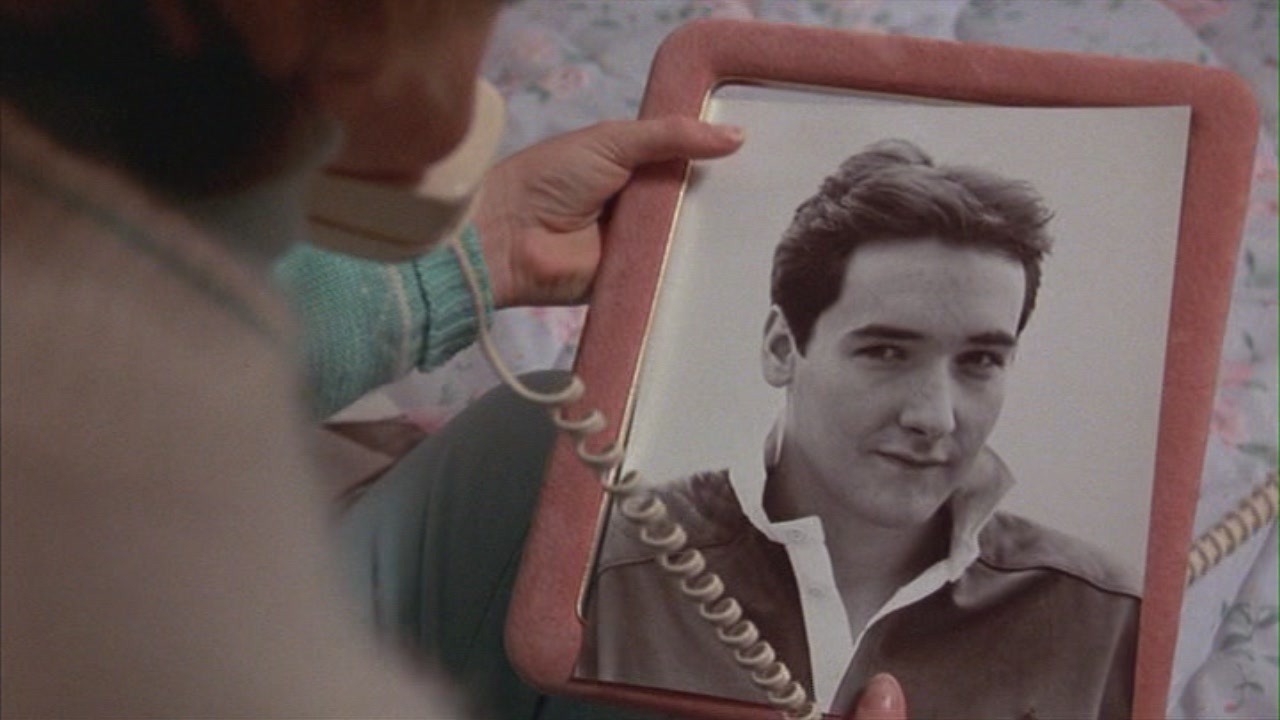
High school student Lane Meyer (John Cusack) is depressed after his girlfriend dumps him for the captain of his school’s ski team. Well, that’s putting it lightly: he’s literally suicidal. After trying to kill himself several times to no effect, avid skier Lane decides to ski the K-12 in an effort to win his girlfriend back.
With the help of his would-be drug addict friend Charles de Mar (Curtis Armstrong, best known as “Booger” from Revenge of the Nerds) and French foreign exchange student Monique, who is stuck living with his obnoxious neighbors, Lane gains his confidence back and wins a ski challenge he’s proposed to the captain of the ski team that stole his girlfriend.
That’s a general outline of the plot, but the plot is besides the point in this thoroughly wacky comedy. Between Lane’s genius little brother who can build lasers and functioning rocket ships, two Japanese men who speak like Howard Cosell and goad Lane into drag races from a loudspeaker on top of their car, an obsessed paperboy who persistently demands the two dollars he’s owed by Lane’s family, and the many surreal interactions and moments Lane experiences throughout the film, Better Off Dead is a wholly unique 80s teen comedy.
Alternating between black humor and wildly silly humor, it’s the type of film that’s no longer made: a ski comedy. Instead of the crassness that many of the films produced in that subgenre, however, Better Off Dead instead derives its humor from surreal comedy and a general air of wackiness that comedies produced today tend to avoid. It’s a solid, totally rad 80s cult comedy.